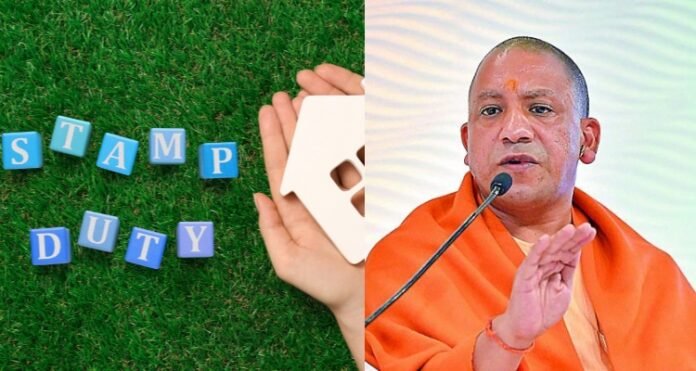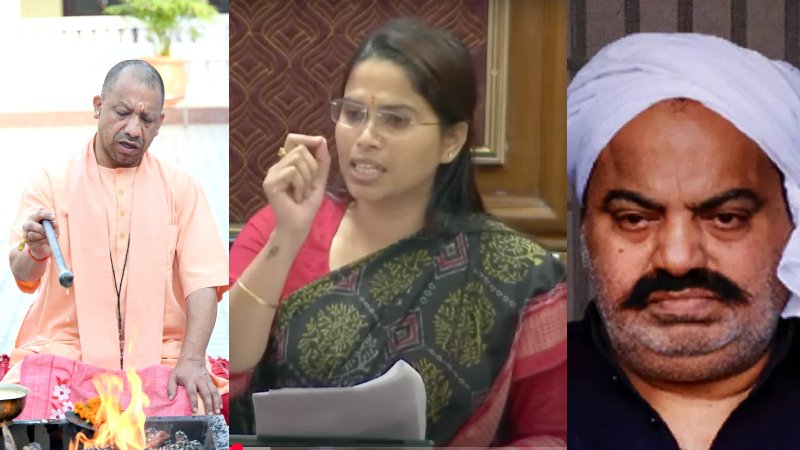The Yogi Adityanath government has announced major stamp duty reforms in Uttar Pradesh. Families will now pay a flat fee of Rs 5,000 for property transfers instead of paying a percentage of property value. The Cabinet has also increased stamp duty exemptions for women. Experts are calling this a big relief for common people, especially in rural and small-town areas.
Flat Fee for Family Transfers
Under the new rule, property transfers within families will cost just Rs 5,000. Earlier, people had to pay duty calculated on the total property value. This often ran into lakhs of rupees.
Property developers and legal experts say the move will ease both the cost and the process. SK Jaggi, COO of Eldeco and a CREDAI member, welcomed the decision. He said it will remove a major pain point and cut disputes. Families can now transfer property smoothly, without long paperwork or heavy charges.
Relief for Rural Families
Advocate Abdul Rahman from Lucknow said the reform is a turning point for villages. Earlier, people avoided registering partition deeds due to high costs. Families relied on oral arrangements, leading to disputes later.
With the flat fee, people can now easily register deeds and avoid fights. Rahman also noted that this will reduce the burden on revenue courts. Many disputes are linked to stamp duty litigation. If families start registering their property at low cost, the number of cases will drop.
A farmer in Barabanki is one such example. He divided his land among three sons. Under old rules, the family would have paid lakhs in duty. Now, the entire partition was completed for just Rs 6,000. “This rule saved us both money and quarrels,” the eldest son said.
Boost for Women Buyers
The Cabinet has also expanded stamp duty rebates for women. Now, women will get one per cent exemption on property transactions up to Rs 1 crore. Earlier, this benefit was limited only up to Rs 10 lakh.
Rahman explained that women will now save as much as Rs 1 lakh on registration. The rebate has also been raised to seven per cent. Jaggi said this will encourage women’s homeownership and strengthen Mission Shakti, the state’s women empowerment campaign.
Officials said the new provisions aim to make housing more accessible. Many families are now registering property in women’s names. While activists argue the relief is modest, they agree the symbolic value is important in a patriarchal society.
Old Burden Remains on Buyers
Outside family transfers, stamp duty rates remain among the highest in India. Men still pay about seven per cent of property value, women get a rebate of one per cent, and joint owners pay between six and seven per cent. Add one percent registration fee, and the cost rises further.
In cities like Noida and Lucknow, buyers also face inflated circle rates. These government-set values are often higher than actual market prices. As a result, buyers must pay tax on inflated amounts.
Property broker Rajesh Srivastava called stamp duty “an invisible tax that pinches every buyer.” He said this forces many people to understate values in sale deeds, leading to more disputes and court cases.
Revenue vs Relief
Officials admit that stamp duty is a major source of income. In 2023–24, the state earned Rs 26,961 crore from stamp duty and registration. The figure is expected to rise to Rs 38,150 crore in 2025–26. This is around 13 per cent of Uttar Pradesh’s total tax revenue.
The government insists these collections are vital. But people in cities still want a cut in rates to boost the housing market. Developers argue that a uniform reduction would revive sales.
For now, however, families and women buyers have received welcome relief. With cheaper family transfers and bigger rebates for women, the new rules bring clarity, affordability, and smoother ownership rights across Uttar Pradesh.


